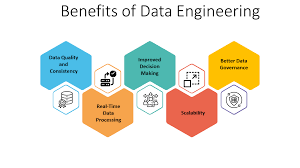Engineering Data Management: Optimizing Data for Efficiency and Innovation
In today’s technology-driven world, engineering projects generate vast amounts of complex data, including design specifications, simulation results, and project documentation. Effectively managing this data is critical to ensuring accuracy, collaboration, and efficiency. Engineering Data Management (EDM) helps organizations centralize, standardize, and secure their engineering data, enabling teams to work efficiently and make informed decisions.
What is Engineering Data Management (EDM)?
Engineering Data Management (EDM) refers to the systematic process of collecting, storing, organizing, and sharing engineering-related data throughout the project lifecycle. It encompasses various types of data, such as:
- CAD models and drawings
- Technical specifications
- Simulation and testing data
- Bill of Materials (BOM)
- Project documents and reports
- Compliance and regulatory documentation
By implementing EDM, organizations can streamline workflows, enhance collaboration, and improve data accuracy, ultimately leading to more efficient engineering processes.
Why is Engineering Data Management Important?
1. Enhances Collaboration
Engineering projects involve multiple teams, including designers, analysts, manufacturers, and suppliers. EDM ensures that everyone has access to the latest data, reducing miscommunication and errors.
2. Ensures Data Integrity and Accuracy
EDM systems help maintain version control, ensuring that engineers work with the most up-to-date and accurate information, preventing costly mistakes and rework.
3. Improves Compliance and Security
Engineering data is subject to strict regulatory requirements, such as ISO standards, FDA regulations, and industry-specific guidelines. EDM helps organizations adhere to these standards by providing secure access and audit trails.
4. Speeds Up Product Development
By automating data retrieval and eliminating redundant tasks, EDM accelerates the design and development process, allowing faster time-to-market for new products.
5. Optimizes Data Storage and Retrieval
Engineering projects generate large volumes of data. EDM solutions organize and categorize this data, making it easy to locate and retrieve specific files when needed.
Key Features of an Effective EDM System
- Centralized Data Repository – Stores all engineering data in a single, structured location for easy access.
- Version Control – Tracks changes, ensuring teams use the latest file versions while keeping historical records.
- Access Control & Security – Restricts unauthorized access to sensitive engineering data.
- Automated Workflows – Streamlines approval processes and data validation.
- Integration with Engineering Tools – Supports seamless collaboration with CAD, PLM, and ERP systems.
Best Practices for Implementing Engineering Data Management
1. Establish a Clear Data Management Strategy
Define policies for data storage, access, and lifecycle management. Ensure all team members understand the process.
2. Choose the Right EDM Software
Select a robust EDM solution that aligns with your organization’s needs. Popular tools include:
- Siemens Teamcenter
- Autodesk Vault
- Dassault Systèmes ENOVIA
- PTC Windchill
- OpenText Engineering Document Management
3. Implement Strong Data Governance
Assign data stewards responsible for maintaining and updating engineering data, ensuring consistency and compliance.
4. Ensure Seamless Integration
Integrate EDM with existing enterprise systems like Product Lifecycle Management (PLM), Enterprise Resource Planning (ERP), and Computer-Aided Design (CAD) tools.
5. Regularly Audit and Update Data
Perform routine data audits to eliminate outdated, redundant, or inaccurate files. Keep engineering data aligned with evolving business needs and regulations.
Conclusion
Engineering Data Management is essential for modern engineering and manufacturing processes. By implementing a robust EDM strategy, businesses can enhance collaboration, improve efficiency, and ensure compliance with industry standards.
At i4Integrated Services, we provide tailored EDM solutions to help organizations manage their engineering data efficiently. Contact us today to learn how we can optimize your engineering workflows with best-in-class data management practices!


